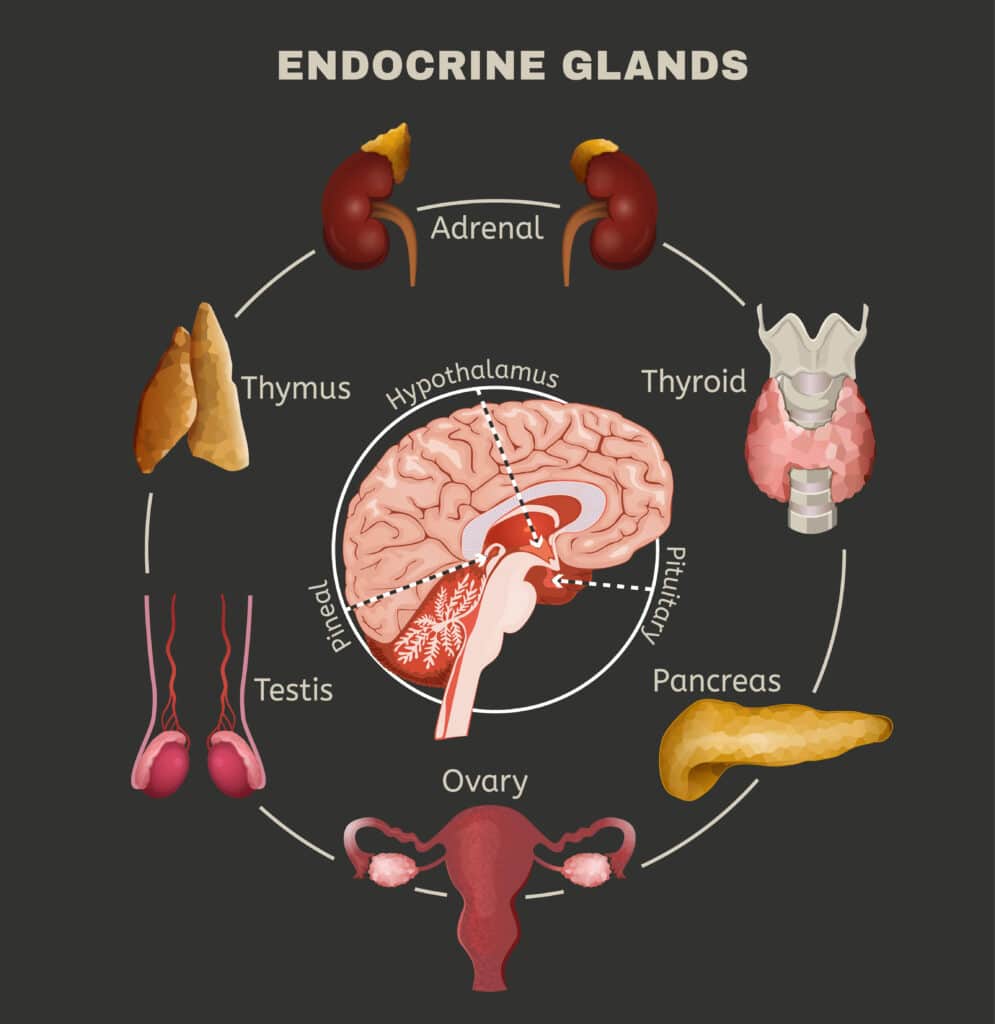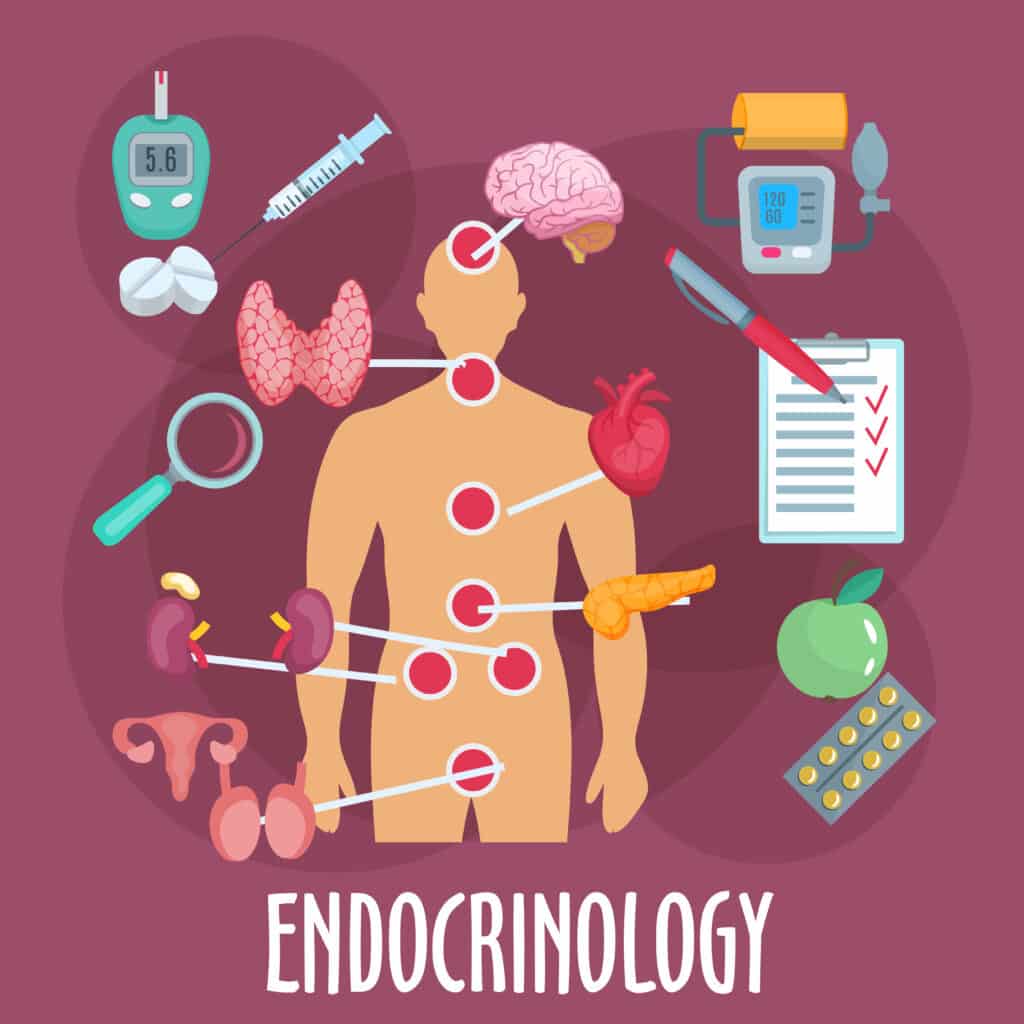
In the hustle and bustle of our lives, sleep often becomes an afterthought. It’s often seen as a flexible part of our schedule that we can trim down to make time for other things, whether it be work, household tasks, or hanging out with family and friends. However, sleep — or the lack thereof — can have a significant impact on our systemic health and overall well-being.
Among the wide range of factors influencing the quality of our rest, hormones play a crucial role, yet they are often overlooked. The complex interplay of different hormones found in our bodies influences many physiological processes, sleep being one of them. Understanding this relationship is crucial, especially in our fast-paced world, where sleeping disorders and hormonal imbalances are becoming increasingly common.
Hormones and Sleep: A Complex Connection
At the core of the connection between endocrine function and sleep are two specific hormones: melatonin and cortisol. Melatonin, often referred to as the “sleep hormone,” regulates the sleep-wake cycle. Its production by the pineal gland is stimulated by darkness, signaling to the body that it’s time for bed.
Cortisol, on the other hand, is known as the “stress hormone.” Its levels peak in the morning, promoting wakefulness and alertness, then taper off by the evening.
When the balance between these two hormones is disrupted, it can make it hard for you to get the rest you need. For instance, screen time right before going to bed can suppress melatonin production, inhibiting your ability to fall into a blissful slumber. Similarly, chronic stress can lead to excess cortisol production, leading to insomnia.
The Broader Hormonal Landscape
Melatonin and cortisol, while important, are not the only hormones that influence slumber. In females, fluctuating estrogen and progesterone levels — whether due to pregnancy, menopause, or menstruation — often impact sleep quality.
In males, testosterone follows a daily rhythm, affecting sleep patterns. For older men especially, low testosterone levels have been linked to low-quality rest.

The Importance of a Good Night’s Rest
A night without peaceful slumber will do more than just leave you feeling tired the next day; insomnia can also have significant effects on your overall well-being. Without sufficient, consistent rest, your body cannot function properly, potentially contributing to serious health complications, including:
- A weakened immune system and increased susceptibility to illness
- Chronic inflammation, which is associated with conditions such as diabetes, cardiovascular disease, and autoimmune disorders
- The development of cardiovascular problems, including hypertension, heart disease, and stroke
- Disruptions in the body’s metabolic processes, including glucose metabolism and insulin sensitivity, potentially contributing to the development of type 2 diabetes
- Mood disorders such as depression and anxiety
- Reduced physical performance, coordination, and reaction time
- Weight gain and obesity
- Impaired quality of life, daytime fatigue, difficulty concentrating, and irritability
The Role of Hormone Replacement Therapy
To prevent these systemic health issues, getting your forty winks each night is of utmost importance. This is where hormone replacement therapy comes in. By restoring hormonal balance, you can once again get the restorative rest you need to live a happy, fulfilling life.
For women, especially those going through menopause, hormone replacement therapy can stabilize their estrogen and progesterone levels, alleviating nighttime disruptions like hot flashes and night sweats.
Similarly, men experiencing andropause, the male equivalent of menopause, may benefit from testosterone replacement treatments. Addressing declining testosterone levels can improve sleep quality, among many other benefits.

Beyond Hormones: A Holistic Approach to Quality Rest
While hormone replacement therapy can be an effective method for treating sleep issues caused by hormonal imbalances, it’s best utilized as part of a broader approach. Lifestyle modifications can also help you get the rest your body needs. These include:
- Regular exercise: Consistent physical activity can improve sleep patterns, but be careful not to exercise too close to bedtime.
- Healthy diet: A balanced, nutrient-rich diet that supports overall hormonal balance can help you catch some Zs.
- Stress management: Techniques such as yoga, meditation, and breathing exercises can reduce cortisol levels, helping you rest easier.
- Establish a schedule: Setting a regular sleep schedule, creating a comfortable environment, and reducing blue light exposure before bedtime are critical habits.
Achieve Hormonal Balance With Elevate Wellness and Vitality
At Elevate Wellness and Vitality, we believe in taking a holistic approach to addressing sleep issues. If you think you could benefit from hormone replacement therapy, feel free to reach out to our expert team for more information about how we can help you. Remember that a good night’s rest isn’t just a luxury — it’s essential to living a healthy, energized life.







